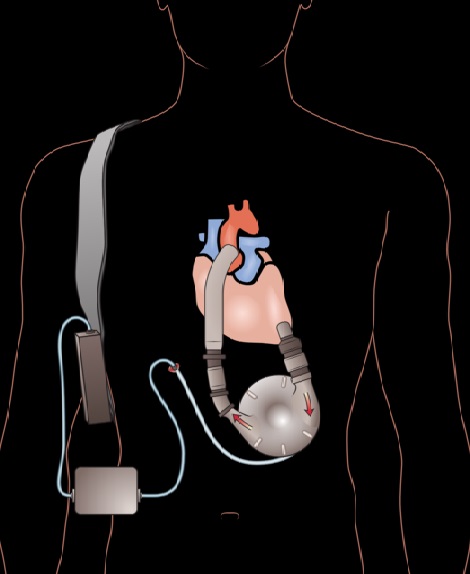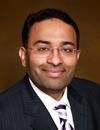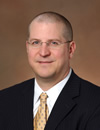Shared Content Block:
Surgery Styles -- "surgery-flex-gallery" class
Heart Failure

A left ventricular assist device (LVAD)
Heart failure, or “congestive” heart failure (CHF), is a condition in which the heart can no longer pump the necessary volume of oxygenated blood to the body. This can result from diseases that weaken the heart muscles, diseases that cause stiffening of the heart muscle, or diseases that put increased demands on the circulatory system, such as hyperthyroidism and anemia.
Many conditions that lead to heart failure cannot be reversed, but heart failure can often be treated with good results. Medications can improve the symptoms, and lifestyle changes can improve your quality of life. Additionally, there are surgical options for the treatment of heart failure and its symptoms.
Heart Transplant
Patients who have advanced heart failure but are otherwise relatively healthy may be considered for a heart transplant. A heart transplant is the replacement of patient’s diseased heart with a more healthy donor heart. The University of Colorado’s Heart Transplant Program has been in existence since 1986 and is the only Medicare-certified heart transplant program in Colorado.
Mechanical Circulatory Support
A ventricular assist device (VAD) is a type of mechanical pump that is used to augment the flow of oxygenated blood from the heart to the body. A ventricular assist device can be surgically implanted in the chest cavity or worn outside of the body. A VAD can be used as a short- or long-term treatment for advanced heart failure. For more information about Mechanical Circulatory Support, see the page for the Heart Failure Clinic on the UCHealth website.
Extra-Corporeal Membrane Oxygenation (ECMO)
Extra-corporeal membrane oxygenation is a technique in which a patient’s blood is withdrawn from a large vein in the body, passed through a pumping mechanism and a device that both adds oxygen and removes carbon dioxide. The blood is then returned to the patient’s circulatory system where it is circulated throughout the body. This system functions as both heart (for pumping) and lungs (adding oxygen to and removing carbon dioxide from) the lungs. ECMO is typically a short-term treatment protocol for patients in respiratory failure resulting from such things as infection, pneumonia, trauma, or smoke inhalation.
Our surgeons who perform this procedure
This information is provided by the Department of Surgery at the University of Colorado School of Medicine. It is not intended to replace the medical advice of your doctor or healthcare provider. Please consult your healthcare provider for advice about a specific medical condition.



